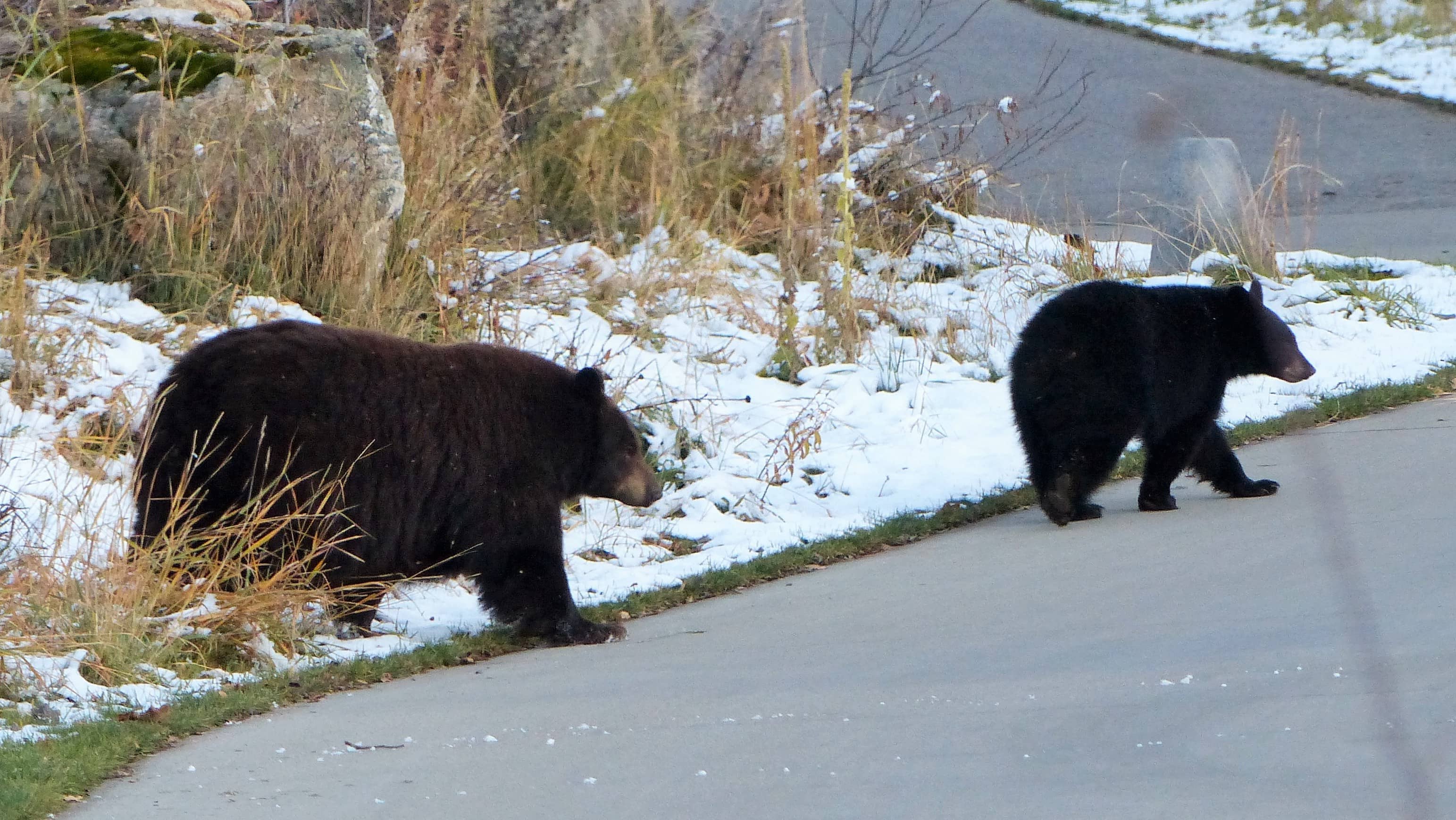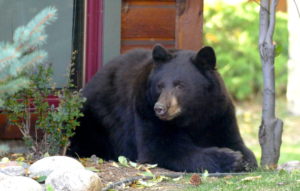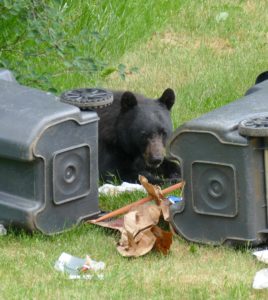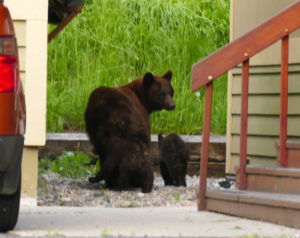
Bears are coming out of hibernation and their hungry and looking for food. Colorado Parks and Wildlife has already received reports of bear activity in 14 Colorado counties. Watch your bird feeders and trash cans.

Here’s more today from Colorado Parks and Wildlife.
Bears are becoming active; do your part to reduce conflicts in 2022
DENVER – With spring upon us, Colorado Parks and Wildlife reminds citizens and visitors that bears are emerging from hibernation and beginning their search for food.
CPW has already received reports of bear activity in 14 Colorado counties this year. Wildlife officials are urging residents to secure any and all attractants. Bears should NOT be eating from trash receptacles, bird feeders or other human-provided food sources around homes or businesses.

“Every time a bear gets a treat, a bird feeder, a hummingbird feeder, or trash, it teaches the bear that people mean food,” said Mark Lamb, CPW’s Area Wildlife Manager for Area 1 that covers Park, Gilpin and Clear Creek counties along with the western half of Jefferson County. “People who think that it’s one time, no big deal, are totally wrong. It is a big deal when you compound that ‘one time’ with how many ‘one timers’ they get from your neighbors, too. It adds up.”
The first bears emerging from their winter dens typically are males (boars) followed by females (sows) that did not give birth to cubs over winter. The last bears to emerge from winter dens are the females who gave birth to this year’s cubs, usually in late April.
Early season natural food sources for bears include grasses, aspen buds and other vegetative matter that is beginning to sprout. Those gentle food sources, which are the first crops available to them, help a bear’s digestive system and metabolism adjust back to normal after not consuming anything for months.
“Their bodies are needing to adjust to the fact that they haven’t consumed anything for sometimes six months,” said Mark Vieira, Carnivore and Furbearer Program Manager for CPW. “So there is this phase that is referred to sometimes as walking hibernation, where they are out on the landscape moving slowly and eating what tends to be more vegetative material that starts to pass through their system to get their bodies ready for early summer food sources. That is when they will move back into the typical omnivore diet that we see bears eating the rest of the year.”
Over 90 percent of a bear’s natural diet is grasses, berries, fruits, nuts and plants – native crops all dependant on moisture. Wildlife officials monitor weather patterns in the spring and summer to help determine what natural forage will be available in the summer and fall.
In years with good moisture and natural food sources are abundant, bear conflicts and interactions are down.
Though most human-bear interactions occur in the late summer and fall months, a late frost or prolonged dry weather could lead to localized natural food failures and a rise in conflicts. A lack of natural food availability pushes black bears to be more persistent in their search for human-food sources. Being bear aware not only protects your home and property, but it can save a bear’s life.
Starting with proper bear aware practices in the spring may help prevent bears from discovering your home or neighborhood as a food source that it will return to throughout the year.

Tips to prevent human/bear conflicts include:
- Keep garbage in a well-secured enclosure.
- Only put out garbage on the morning of pickup; bring empty cans back inside before dark.
- Use a bear-resistant trash can or dumpster. These are available online or from your trash hauler.
- Clean all garbage cans regularly to keep them odor free. The scent of ammonia can deter bears.
- Take down all bird feeders. Bird feeders are a major source of bear/human conflicts – 1,073 conflicts because of them between 2019-21. Birds have naturally available food sources during the spring, summer and fall. Don’t let your bird feeder become a bear feeder.
- Don’t leave pet food or stock feed outside – never provide food sources for any wildlife.
- Install and test your electric fencing to protect your chicken coops, bee hives or even livestock enclosures.
- Clean all BBQ grills.
- Keep garage doors and windows closed and locked, especially between dusk and dawn.
- Don’t leave attractants such as snacks, food wrappers, gum, or even scented hand lotions in your car; and always lock vehicle doors.
- Use bear boxes or bear-proof containers for food and scented items when camping.
- Don’t leave food outside while camping. If bear boxes aren’t available, buy your own bear canister or leave all food in the trunk of a locked vehicle as your last resort.
- Buy an air horn or bear spray. These tools are good to have whether for your home or if you go hiking and camping. They can help haze bears away.
- Review CPW’s Bearproofing Your Home Fact Sheet and conduct a home audit to be sure you are not attracting bears to your property.
- Talk to your neighbors and kids about being bear aware.
For more information about Living with Bears in Colorado, visit https://cpw.state.co.us/bears